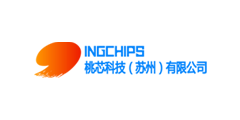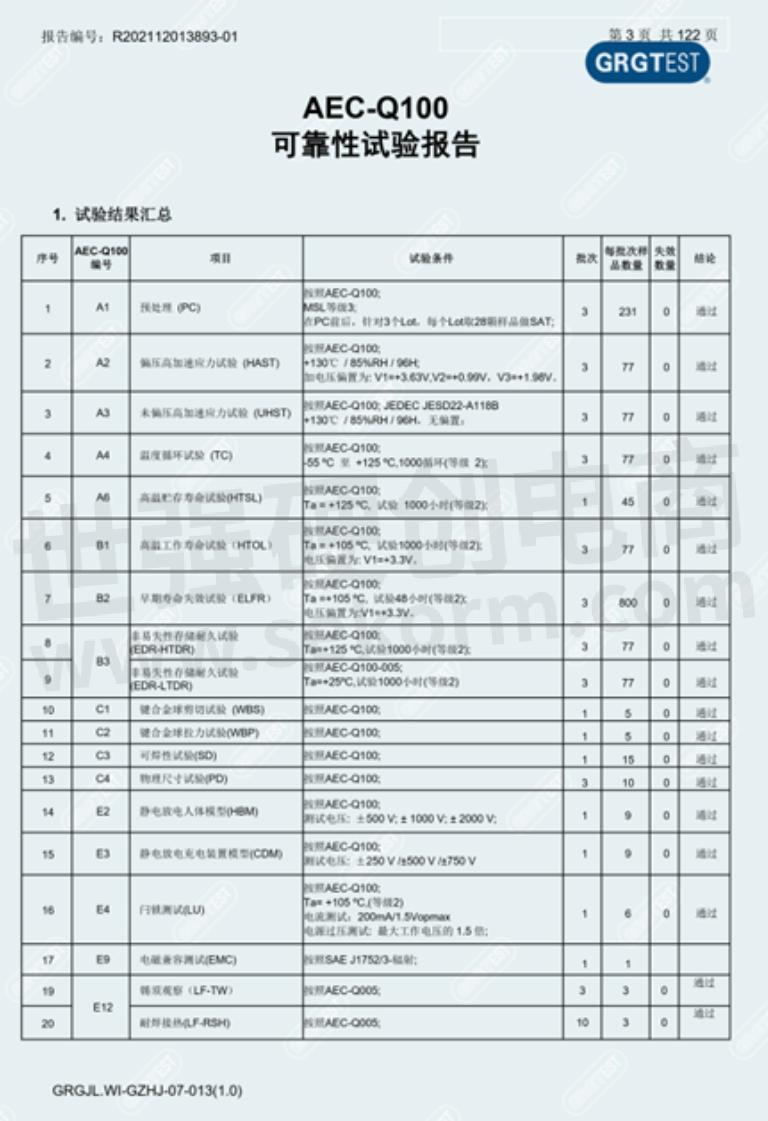INGCHIPS 32-pin, QFN32 4x4 BLE5.1 SoC ING91870CQ obtained AEC-Q100 Test Certification

ING91870CQ is a low-power consumption SoC delivered by INGCHIPS Technology. After nine months of reliability testing, the chip finally obtained AEC-Q100 test certification.
ING91870CQ is a 32-pin, QFN32 4x4 BLE5.1 SoC with TSMC 40nm process, 48M main frequency, built-in 512KB eFlash, 128KB RAM, -40~125℃ working temperature. It supports indoor positioning, multiple connections, low power consumption, and other BLE5.1 full specification features, meeting various existing vehicle machine BLE application scenarios, such as TPMS, ETC, BMS, Key, etc.

Certification Report
AEC-Q100 is a requirement for Active Device components. Because the automobile involves safety requirements, there are strict reliability standards for components, subsystems, complete devices, etc. for example:
1. Environmental requirements: For the temperature requirements of automobiles, the executive standard of - 40~150C is required for the components around the engine; Others, such as humidity, mildew, dust, water, EMC, and harmful gas erosion, all have higher standards than most other industrial or consumer electronic products.
2. Vibration and shock: The automobile is a product with various working conditions and works in motion, so the resistance to vibration and shock also has a high standard.
3. Reliability: The life cycle of an automobile is usually several hundred thousand kilometers. For any component of an automobile, it needs to keep normal operation during the life cycle of the automobile. And because there are many thousands of components, it is very challenging work for the system to keep normal. It is usually a failure requirement of PPM or even a zero failure requirement.
4. Consistency: Due to the need for mass production, tens of millions of vehicles are required to have consistent characteristics. If the consistency of components is poor, the discrete characteristics of the whole vehicle will be more obvious. Therefore, it must also be selected by aging and tracking the consistency of products in actual scenarios.
5. Other problems: For example, due to reliability considerations, vehicle standard products may not be the most advanced IC technology; At the same time, the car standard chip will also consider the viability of the supplier itself. After all, the life cycle of a car is very long.
The AEC-Q100 standard system promoted in North America is usually used as a standard for the reliability proving of chips, as mentioned above. Not only AEC-Q100 but also the chip vendor's quality control system, such as IATF-16949, must be established to control the failure rate; For functional safety, ISO-26262 is also a certification that must be passed. Therefore, the requirements for car-qualified chips are higher than those for consumer and industrial chips. The certification is time-consuming, and the spec for getting on the car is higher than that for consumer chips.
It must be recognized that various vehicle regulation level certification is a necessary condition, not a sufficient condition, for automotive chips. The use of automotive chips requires a large number of reliability experiments, as well as gradual progress for chip manufacturers.

- 【Datasheet】ING91870CQ BLE5.1 SoC Datasheet
- 【Datasheet】ING91870CQ BLE5.1 SoC Datasheet
- 【Datasheet】ING91870CQ BLE5.1 SoC Datasheet
- +1 Like
- Add to Favorites
Recommend
- Ingchips ING918xx Series BLE SoC for Feiyu Vimble 3 Stabilizer with 1.25Mbps GATT Data Rate Provides High Stability and Performance
- INGCHIPS Announced Smarter, Cooler, Smaller ING918xx Series BLE5.1 SoC with Sensitivity Reaching 102dB@125kbps
- Series application of Ingchips BLE SoC in Power Grid Industry
- Silicon Labs Simplifies IoT Development with Simplicity Studio 5
- News | Silicon Labs and Amazon Collaborate on Sidewalk, a New Shared Network for IoT Consumer Devices
- Silicon Labs Z-Wave Wireless Selected for Johnson Controls Next Generation Qolsys Smart Home Panel
- Silicon Labs Expands Isolated Gate Driver Product Family Ideal for Hybrid and Electric Vehicles (EV)
- Silicon Labs Strengthens Isolated Gate Driver Portfolio
This document is provided by Sekorm Platform for VIP exclusive service. The copyright is owned by Sekorm. Without authorization, any medias, websites or individual are not allowed to reprint. When authorizing the reprint, the link of www.sekorm.com must be indicated.

































































































































































































































































































































































































































































































































































































































































































































































































































































































